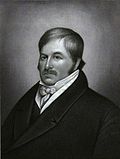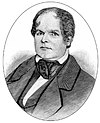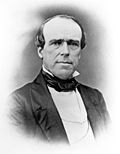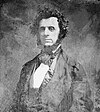| Delegate | Party | Term | Cong
ress | Electoral history |
|---|

William Woodbridge
(Detroit) | Democratic-Republican [1] | October 28, 1819 –
August 9, 1820 | 16th | Elected October 28, 1819 and seated March 2, 1820.
Resigned due to family illness. |
| Vacant | August 9, 1820 –
November 20, 1820 | |

Solomon Sibley
(Detroit) | Federalist [2] [3] | November 20, 1820 –
March 3, 1823 | 16th
17th | Elected to finish Woodbridge's term. [4]
Re-elected in 1821. [5]
Retired. |

Gabriel Richard
(Detroit) | Independent [6] | March 4, 1823 –
March 3, 1825 | 18th | Elected in 1823.
Lost re-election. |

Austin Eli Wing
(Detroit) | Anti-Jacksonian | March 4, 1825 –
March 3, 1829 | 19th
20th | Elected in 1824.
Re– elected in 1826.
Retired. |

John Biddle
(Detroit) | Jacksonian [8] | March 4, 1829 –
February 21, 1831 | 21st | Elected in 1828.
Retired and resigned before next term. |
| Vacant | February 21, 1831 –
March 3, 1831 | |

Austin Eli Wing
(Monroe) | Anti-Jacksonian | March 4, 1831 –
March 3, 1833 | 22nd | Elected in 1830.
Retired. |

Lucius Lyon
(Bronson) | Jacksonian [9] | March 4, 1833 –
March 3, 1835 | 23rd | Elected in 1832.
Retired. |

George Wallace Jones
(Sinsinawa Mound) | Jacksonian [10] | March 4, 1835 –
June 15, 1836 | 24th | Elected in 1834.
Seated as the delegate from Wisconsin Territory in December 1836. Deciding a contested election in December 1838, the House Committee on Elections determined that his service as delegate from Michigan Territory ended June 15, 1836. |







